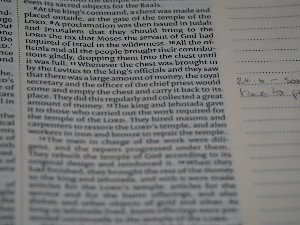Mohamad Saufee Anuar
The Character of Unit Trust Consultants in Influencing the Islamic Investment Behaviour and Intention
Introduction
the character of unit trust consultants in influencing the islamic investment behaviour and intention . Analyze Islamic investment behavior & intention for unit trust funds. Discover how unit trust consultants' character moderates this relationship, impacting Islamic finance decisions in Southern Malaysia.
Abstract
Investing in Islamic unit trust funds involves complex decision-making influenced by factors such as attitudes, subjective norms, perceived behavioural control, religiosity, and the character of unit trust consultants. This paper examines the relationship between Islamic investment behaviour (IIB) which comprises attitude, subjective norms, perceived behavioural control, and religiosity and investors’ intention to invest in Islamic unit trusts. Additionally, it assesses the moderating effect of consultant characteristics (personal traits, involvement, promotion, and competency). A quantitative approach using a survey of 291 respondents in Southern Malaysia revealed that IIB significantly influences investment intention. Moreover, the character of consultants significantly moderates this relationship. These findings have theoretical implications for extending the Theory of Planned Behaviour (TPB) with religiosity and practical implications for consultant training and Islamic financial product marketing.
Review
This paper addresses a highly relevant and contemporary topic in Islamic finance, investigating the intricate factors influencing investment behavior and intention towards Islamic unit trusts, with a particular focus on the role of consultants. The research successfully identifies that Islamic Investment Behavior (IIB), encompassing attitude, subjective norms, perceived behavioral control, and religiosity, significantly predicts investment intention. Furthermore, a key contribution is the finding that the character of unit trust consultants plays a significant moderating role in this relationship. This study offers a valuable extension to the Theory of Planned Behaviour (TPB) by integrating religiosity and highlighting the human element in financial decision-making within a specific cultural and religious context. The methodological approach, utilizing a quantitative survey of 291 respondents in Southern Malaysia, appears sound for the stated objectives. The identification of consultant characteristics (personal traits, involvement, promotion, and competency) as a moderating factor provides nuanced insights that move beyond generic financial literacy or product-specific knowledge. These findings hold substantial practical implications, particularly for the training and development of unit trust consultants in the Islamic finance sector, emphasizing the importance of soft skills and ethical conduct alongside technical expertise. Additionally, the insights derived can inform more targeted and effective marketing strategies for Islamic financial products, tailored to the unique drivers of investor intention in this market. While the study provides robust findings, the abstract could hint at some limitations or areas for future exploration. For instance, the generalizability of findings from Southern Malaysia to other regions or broader Islamic financial markets could be discussed. Further research might also delve deeper into the specific mechanisms through which each component of "consultant character" moderates the IIB-intention link, perhaps through qualitative methods. Consideration of other potential moderating or mediating factors, such as trust in financial institutions or regulatory environments, could also enrich future iterations of this valuable research stream.
Full Text
You need to be logged in to view the full text and Download file of this article - The Character of Unit Trust Consultants in Influencing the Islamic Investment Behaviour and Intention from Journal of Halal Science and Management Research .
Login to View Full Text And DownloadComments
You need to be logged in to post a comment.
Top Blogs by Rating
Invisible Worlds: How Animals...
By Sciaria
Beyond the Stereotype: Unpacki...
By Sciaria
The Whisper of the Unfinished:...
By Sciaria
Favorite Blog
Unveiling Earth's Hidden Major...
By Sciaria
Electro-Pulse: Unveiling the U...
By Sciaria
The Compass You Didn't Know Yo...
By Sciaria
Related Research
Efl teaching and learning in cameroon: decolonizing francophone teachers’ minds
Dari pingitan kepelaminan; tradisi yang masih lestari di desa krenceng kecamatan kepung kabupaten kediri
Peran keluarga dalam mendukung kesejahteraan anak berkebutuhan khusus (abk) di slb kasih ibu dolok masihul
Share
Notice Board
- ANALISIS LITOFASIES DAN REEF SYSTEM BATUAN KARBONAT BERDASARKAN DATA WELL LOG DAN CORE PADA FORMASI BATURAJA, CEKUNGAN SUMATERA SELATAN
- LA MUSIQUE FRANçAISE DANS L'ENTRE-DEUX GUERRES
- BOOK REVIEW: THE CRISIS OF REPRESENTATION AND SPECULATIVE MIMESIS: RETHINKING RELATIONS BETWEEN FICTION AND REALITY IN 21ST-CENTURY FANTASY STORYTELLING





